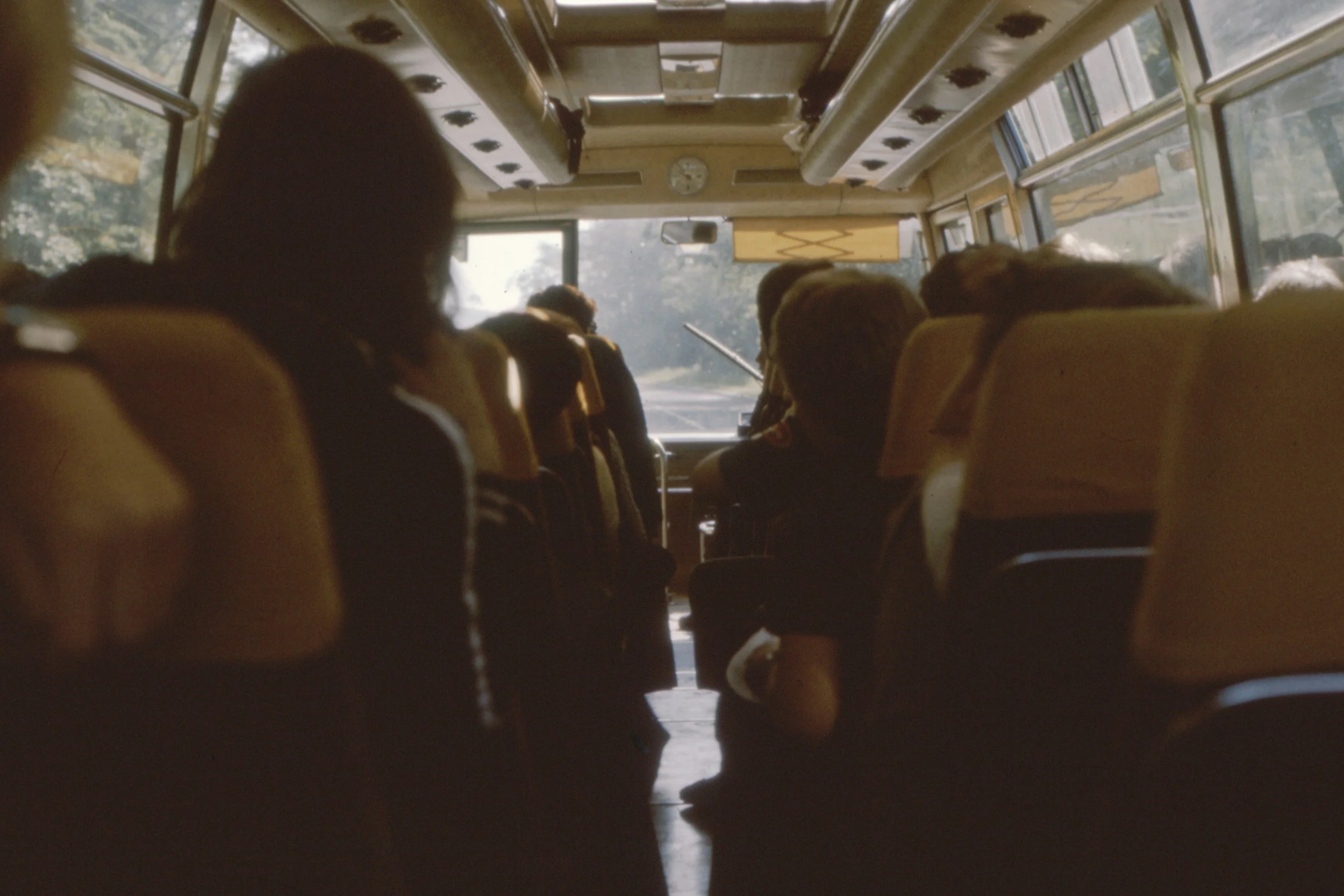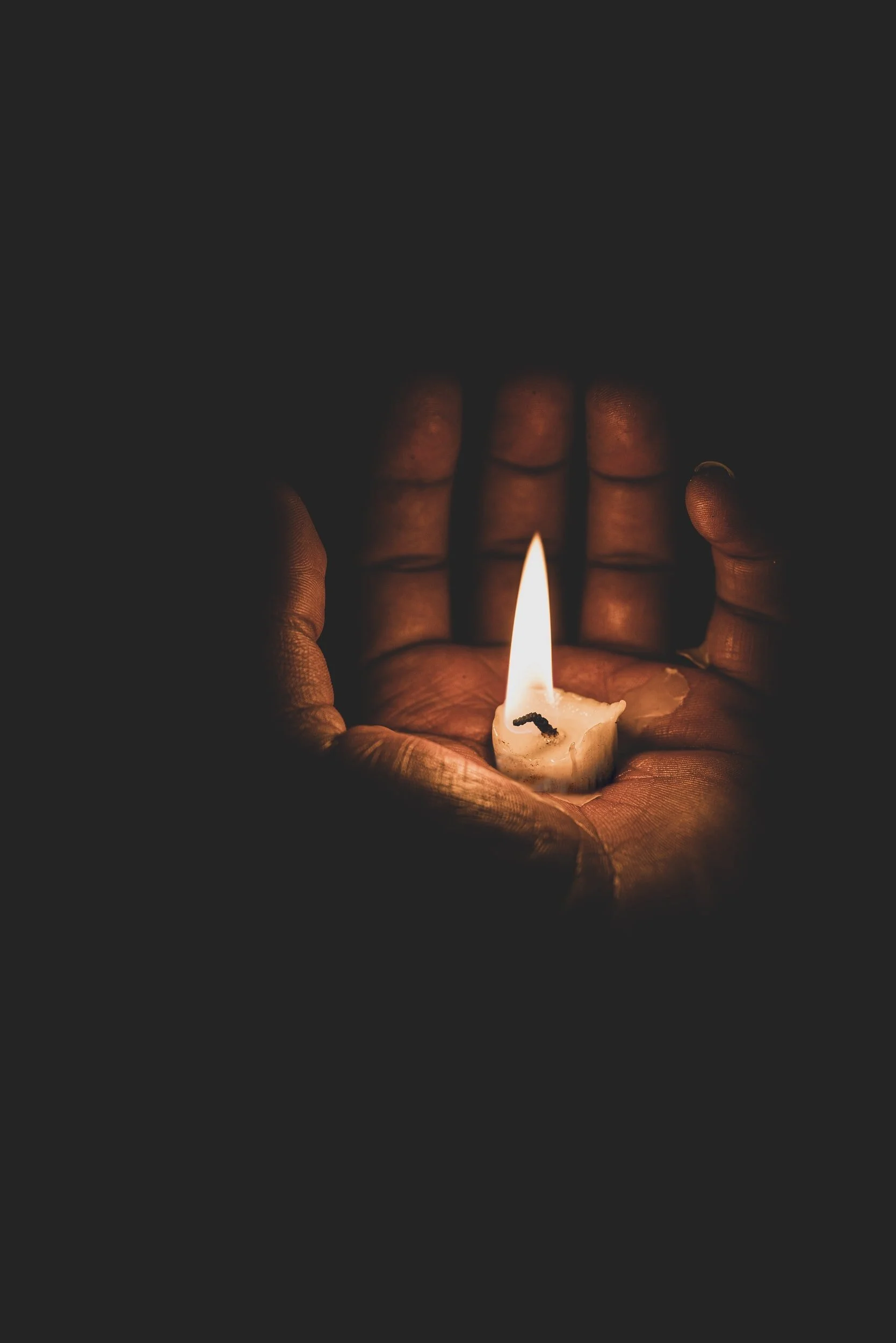The Soundtrack of Fury
“Why do you always play the same songs?” I’ve seen her iTunes library; there are hundreds of MP3s. The overplayed list explores grief beyond the Lilith fair trope. Some get mainstream airtime like “Drops of Jupiter” and “Meet Virginia,” others obscure, folksy lesbian coffee shop artists.
She glances at me for a second before returning to her screen. “I’m making the soundtrack of us.”
I take my rain-soaked UGG boots off and sit with my socks tucked underneath me on her worn brown velvet couch. The cold autumn air enters the room through the fire escape window, past the sizzling radiator. I create a barrier with the couch blanket that I drape like a cape around my shoulders, only my head sticking out. Fury sits at her desk, her lithe, freckly arms covered with the same white, waffle knit long underwear top that she wore when I was here last week. She clicks, adding a new track by a British rap group, The Streets. Sad, too, but angry. The album Original Pirate Material is an opera—every song a chapter of the narrative—the main character a down on his luck antihero. The lead singer, Mike Skinner, begins his story as the beat establishes itself. He does not sing or rap; he just spits the rant in his working-class British accent. It’s like the Midwestern twang that can never be removed from my dialect, despite thousands of dollars of student loan debt taking voice classes for my theater degree. Mike Skinner hears me:
“If I want to sit in and drink super tenants in the day, I will
No one's going to fucking tell me jack
But can you rely on anyone in this world?
No, you can't
It's not my fault there's wall-to-wall empty cans.”
The empty cans of beer are a metaphor for the world around him, a world insistent on screwing him over, a world that never gives him any advantages. The ‘I can only rely on myself’ attitude is quintessential Fury, too. She gets all puffed up, spreading her feathers.
She flashes the silver Tag Heuer, “You see this watch?”
It’s impossible to miss, and her wrist is so skinny it makes the watch look bigger than it really is. When I was a freshman in High School, I had a Fossil with a braided brown leather strap. A humble watch from the Great Lakes Mall in Mentor, Ohio. Fury spins her chair around; she takes the watch off her arm and tosses it to me, so I go back in time with her.
“I walked past this watch every day in Aspen. I worked and worked, saving up for it. 10k. Just when I had saved up enough, she bought it for me instead. I was so mad.” Her jaw clenches. She always ends like this when she talks about Aspen, eyes glazing over. The “she” she refers to is her ex-girlfriend, who was a Lifetime movie star that apparently I look like. She’s gone, again. The silver watch has a sapphire blue face. It’s cool in my palm. I try it on my wrist and snap the clasp.
The song catches, the record skips, everything we just heard rewinds, zips.
She’s walking past the boutique on the ski resort. She’s going to meet Mackenzie for the first time, at the film festival, or maybe it’s the premiere of a movie. Fury has told me the bedtime story before, but I still haven’t memorized all the details. I picture Aspen pristine, snow castles everywhere, ice sculpture animals at the base of the lodge where Fury works.
“She was standing in front of the fire,” she starts. Mackenzie Lewis; I researched her when my roommate and I went to the library after the last time Fury told me. She’s real, but the last film on IMDB was over eight years ago. “She was a freaking TV star. Cute, just like you, so girl next door.”
By “girl next door,” she means bland brown hair and the brown eyes staring back at me from my own headshot that I gifted her as a joke and she pinned above her desk. The sentiment, “I love the way you fuck me,” is scrawled across in sharpie, which I did when she jokingly asked me for an autograph. Of course, Mackenzie has the waves I covet but a curling iron can’t even fake. Mackenzie parts her hair differently, flipped to one side, a wavy swoop that frames her dimpled chin. Mackenzie's lips are perfectly lined burgundy. The pictures of her on the internet are from over a decade ago.
“I could tell she was a star, but I hadn’t seen any of her stuff. God. I went crazy for her. My knees gave out.” Fury joins me on the couch and taps my wrist, rubbing the watch. She moves her fingers to my hip and plays with my pockets as she speaks. “My knees were jelly, and I was down on the floor. She saw me there, struggling. She watched me shake. Fucking jelly.” Fury knocks out the ash of her one-hitter and packs it with fresh weed. “Then everyone left the party, the friend I came with, all her people. We kissed and made love all night. She said she couldn't believe it was my first time.”
My first time was not like Fury’s. I was stiff and awkward, frozen, and there was no flow. I want to kiss and comfort her, but I wait so I can memorize any details that I missed the last time she told the story.
“I never thought I might be gay before. It didn’t even occur to me! I dated hiking instructors. You know, hippie guys in wool sweaters with bad haircuts. Ski bums.” Done packing the bowl, Fury hands the hit to me first; I inhale until it burns.
“I went back to LA with her. She’d drive me around in her convertible,” she takes a long drag, “she was married.” She lays out the timeline in her tight voice, the pot in her lungs.
“What about her husband?” I ask.
“He knew. He didn’t care. He called me up one time and said, ‘Just don’t let her embarrass me.’”
“Did she know?” I put the watch on the table: tick, tick, tick.
“Yeah, she knew. She said, ‘I’ll leave him, I’ll leave him.’”
“Wow.”
Fury blows out the rest of the smoke and shakes her head. “No. I told her to be alone first. I said, 'Be alone for a year first. If you really love me.’ She couldn’t do it.”
Fury is back in LA, sitting in Mackenzie’s red convertible; she’s taken Santa Monica Boulevard to the ocean just in time for the sunset. She pulls up to the sand and watches as the tide laps in, each round closer, deeper and darker.
“I found some other woman's shit in the car. Some ugly red sunglasses she would never wear. She had Ray-Bans.”
“Who?” I ask. I rub her hand as she stares straight ahead.
“No one. Just some other woman she was shooting a movie with. Do you know what she told me? She said, ‘No, you’re crazy.’ We were in the car with her kid…I just looked at her, and I said, ‘I know she was here, in this car.’” Fury’s jaw is clenched, her fingertips press against her forehead, pushing the rest of the memory out. She continues, “I told her to pull over.” I hold my breath and wait. It’s almost done.
“She was a liar.” Fury comes back to the East Coast, New York, Tribeca, The Loft, the 10-minute song still playing on iTunes. The Streets she selected to be on the soundtrack of us. The beat slowly picks up in The Streets’ rap opera. Fury comes back; the flecks of dark blue around her pupils are locked in on me, “Are you a liar, too?” Her tone is a fixed match. I shake my head no, but I’m afraid. I want her to let me in, but I don’t know if she will.
The next verse of the song starts, the outlook brighter, solutions. Fury plays with my hair, inspired. She flips my part to the side and kisses my cheek. “You have to book a Colgate commercial,” she orders. One gig would legitimize me. Grace, the commercial star. Meanwhile, my mother won’t give me money for a dresser that I want at a junk store near my place.
“But I don’t have anywhere to keep my clothes,” I whined on a recent phone call.
“You made the choice to live like this.” She is in another dimension; we clash like the tinny dissonance of the rap. I stack my clothes on an old kitchen rack.
Fury interrupts my thoughts with another solution. “You have to move out of your place.”
“Why?” She’s never been to my place. I always go to hers.
“Only three things matter in this city: who you know, what you do, and where you live.”
“What’s wrong with Spa-Ha?” I joke. “Spa-Ha” is what the real estate agent called Spanish Harlem when my roommate Manny and I first saw the apartment. Fury doesn’t laugh.
Things wrong with Spa-ha include, the Coca-Cola tables Manny’s mom sent us from Wal-Mart, the goth taxidermied bat collecting sub-letter who took over Manny’s room when he got a job touring with a theater company doing skits about how drugs are bad, and the fact that when Manny is home, his mom comes to visit and earnestly asks me things like, “Why do you think Manny’s not famous yet?”
Mike Skinner digs in again, “It’s all my fault there are wall-to-wall empty cans.” He takes responsibility and only blames himself. He comes to terms with the truth about his situation and takes action making better choices and amends. His new lease on life lifts a dark narrative into one of hope.
That evening, I am home on my stiff Spa-Ha futon. I text a few friends to see if they know of any apartments and click on a Craigslist ad, “East Village, Studio, No Fee.” Fury was harsh about what matters, but I believe her. She does know important people: the lesbians who wrote the quintessential lesbian dating book, the filmmaker who made the documentary about saturated fat, the Canadian who started the online news outlet. It’s a harsh world out there; all she did was point it out. Dear Housing/76564321/noreply@craigslist.org, “Hi, let me introduce myself: My name is Grace, and I am looking for a place to live in the East Village. I am an actor and writer from the Midwest, but I now consider New York my home. It has always been my dream to live in the East Village, and I would love to be considered for this opportunity.” I know I lay it on thick, but I am desperate for this role to be a person who matters, who lives somewhere else.
The “long-term studio sublet on East 9th street” belongs to an avant-garde performance artist who is going to do a tour in Europe. It’ll take 3 weekly paychecks a month to pay for it, but the bookshelves are full of plays, a clawfoot bathtub lives in the kitchen, and starlings are singing a sparrows’ song on the fire escape. I say, “I can bring you the money next week.”
The Streets’ narrator raps over a steady beat the reprise chorus of “Empty Cans:”
“Beginning of hard times to come
But something that was not meant to be is done
And this is the start of what was.”
I zig-zag the neighborhood between 1st and A and walk past a food co-op that advertises, “bulk bins of grains.” Parker Posey sits outside Mud coffee shop with a small white dog and there is a flier for a play running soon at an off-off-Broadway theater featuring an actress from The L Word. I call Fury. The phone rings and clicks into voicemail. “I have news; give me a callback.” The next morning, she still hasn’t. Fury has disappeared, and I feel panicked, the same way I do when she remembers Mackenzie.
The phone rings and beeps, a signal she’s on the other line. She’s alive and talking on the phone to someone. The phone rings, I move in. The phone rings, I go to work at my nanny job, I come home, I take a bath in the kitchen, I invite friends from out of town to stay. The phone rings a long, dull call to action, “Hang up,” it says, “Stop.” The tone of the ring never changes, but, to me, it starts to sound guttural, pleading, desperate, hysterical, hopeless, mad, and in denial. I listen to our songs, the soundtrack of us she made, and try to will away my fear that this is all it was.
-Grace Jordan
Grace Jordan is a non-binary lesbian, essayist, and playwright who lives in Hell's Kitchen. Grace’s play Moses was a two-time semi-finalist at the Eugene O'Neill National Playwrights Conference. Pen Grant Recipient, Dramatists Guild Grant Recipient, Amoralists Writers Group Finalist, Ball Grant Finalist, NAP series Semi-Finalist. Publications include stories and upcoming essays in Many Nice Donkeys, Schuylkill Valley Journal, Cleaver Magazine, Red Fez and Bluestockings. Story of the Month Prize at Adam Jeffrey, Jr Monthly. Yale Writers Workshop 2021. @gcwritesdrama on Twitter.




















